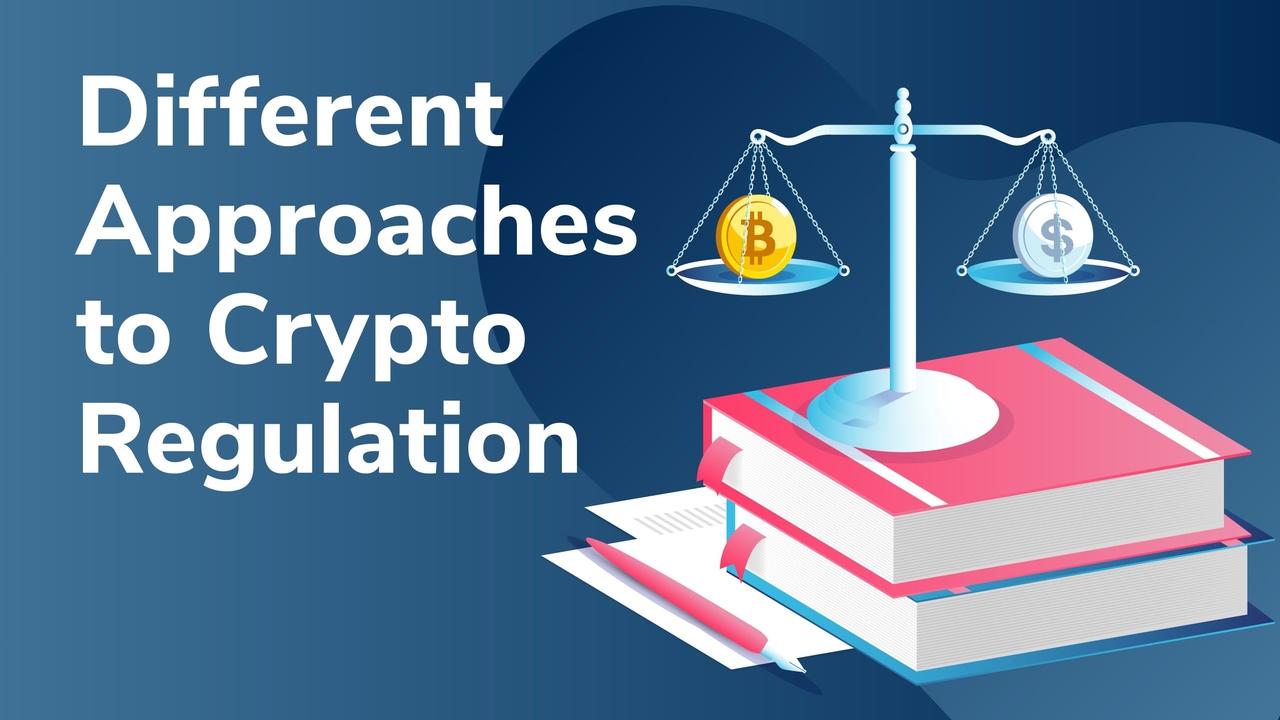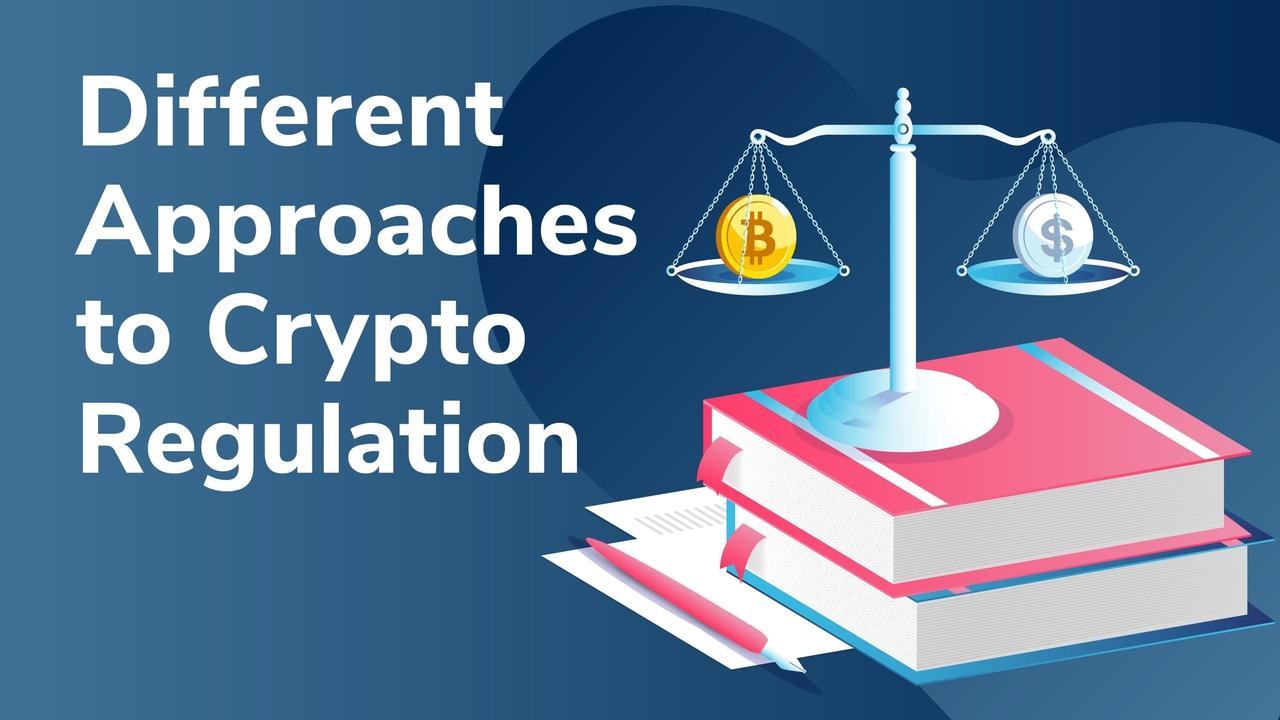
The cryptocurrency space has been largely unregulated throughout its existence, but with continued integration between the traditional financial sector, central banks, and cryptocurrency firms, crypto regulation has become a high priority as we enter this new economic paradigm. In fact, many believe that cryptocurrency regulation could facilitate greater crypto adoption, bolster investor confidence and boost consumer protection.
In this article, we explore some of the different approaches taken towards crypto regulation and look at how regulation has evolved throughout the short history of this young industry. We’ll also explore some of the implications of various regulatory measures and what they could spell for the future of cryptocurrency.
Cryptocurrency regulation is a topic that seems to be all the rage at the moment. Growing crypto adoption is putting pressure on regulators to properly address cryptocurrencies like Bitcoin, and outline clear guidelines. If you want the full scoop on cryptocurrency regulation or other blockchain-related subjects, check out Ivan on Tech Academy! The Academy already has over 20,000 enrolled students, and dozens of blockchain courses.
Shifting Sentiment
Ever since Bitcoin started to attract mainstream media coverage, cryptocurrencies have been demonized by several institutions to which they pose a potential threat, aided in part by the many terrible hacks and scams that have taken place in the infancy of this new technology. Banks, governments, investors, the list goes on. Cryptocurrency was for a long time erroneously considered to be a tool used only for illegal activities on the dark web, such as Silk Road. After years of dedication and development, the sentiment towards cryptocurrency is now changing considerably – as the world becomes more educated about the value proposition of Bitcoin and blockchain technology.

The crypto market is still relatively small compared to other markets, but large sums of money are flooding into cryptocurrency by institutional investors and publicly traded companies. It comes as no surprise that, as adoption continues to grow sector-wide, and cryptocurrency investment becomes more widely accepted, crypto regulation is at the top of the agenda for many parties, particularly those that plan to invest substantial amounts of fiat currency into crypto.
However, with regulation, comes centralization. Centralization is considered by some to be a key part of blockchain adoption, but it is the antithesis of Bitcoin maximalism and those that enjoy the freedoms of decentralized finance. Though a divergent DeFi/CeFi scenario looks likely thanks to crypto integrations from fintech giants such as PayPal, it is also likely that the wall of money moving into cryptocurrency will prompt regulatory action from centralized entities.
This comes as new Bitcoin mining pool Block Seer has begun censoring mining pools in a bid to heighten crypto regulation by requiring all miners from their pool to follow KYC protocols.
Crypto Taxes and Regulations
Crypto taxes is a relatively recent consideration for many traders and investors. As this has been such a grey area for so many years, regulators are moving quickly to keep up with users of cryptocurrency as it continues to gain adoption.
Taxation for cryptocurrency varies in different regions, as it does with many other assets. A report by The Library of Congress shows that cryptocurrency is taxed as an asset in Israel, while in Bulgaria it is taxed as a financial asset, and in Switzerland, cryptocurrency is taxed as if it were a foreign currency.
There is no clear consensus on the taxation of cryptocurrency mining globally. Several countries are developing and implementing strategies to put such regulations in place. An example of this is in Russia, where cryptocurrency mining is taxed after a certain energy consumption threshold is reached.
CBDCs
Central bank digital currencies, or CBDCs, are the proposed answer by central banks to the threat of blockchain-based cryptocurrencies surpassing their national monetary sovereignty. It’s no secret that the use of cash has been declining over the years, accelerated by the recent global pandemic with many people believing physical money is now dirty and poses a threat to their health. The world is moving online, and this year has seen more adoption than ever of people moving their finances online too, investing in Bitcoin as a store of wealth – a savior to local hyperinflationary fiat currencies.
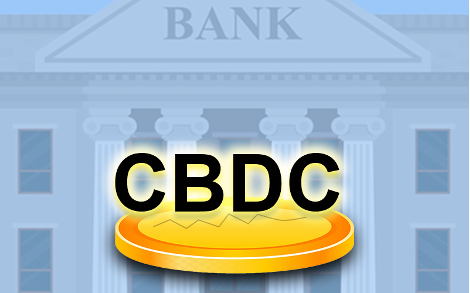
CBDCs are digital representations of fiat currencies, with faster and more efficient transaction times locally and internationally. People will receive digital currencies directly from the central bank, with the bank having complete control over individual interest rates and account supervision. Unlike cryptocurrencies, CBDCs can be removed from consumers’ wallets at the government’s discretion, as exercised by the recent Chinese Digital Yuan lottery airdrop in October. As a trial run to test out the technology, China announced a ten million digital yuan giveaway – but winners had five days to spend their winnings before any remaining funds were retrieved by the government.
Although CBDCs and cryptocurrencies are both digital currencies, there are fundamental differences that are crucial to understand to maintain control over your wealth in the future.
Central and commercial bank-issued currencies prompt several conversations about the future of the global monetary system, and with the European Central bank looking ever-closer to establishing an ECB-issued digital currency, this trend does not look likely to stop.
United States
In the United States, President-elect Joe Biden last week confirmed the members of the Financial Policy Transition team who will evaluate the federal agency’s roles and functions, and to review the transition process, should it be confirmed that Biden becomes president. His team includes several well-respected financial experts that are educated in blockchain technology and cryptocurrencies, including Gary Gensler who will lead the team.

Gensler is the former chairman of the Commodity Futures Trading Commission (CFTC) and has testified before Congress several times in the past few years, defending any comparisons between cryptocurrencies and Ponzi schemes, and in 2019 referred to blockchain as a ‘change catalyst’ in an opinions and editorials piece for Coindesk.
Accompanying Gensler on the team will be other blockchain-savvy financial experts including Simon Johnson, Chris Brummer, and Mehrsa Baradaran, a specialist in banking law and the expert witness at the Senate Banking Committee hearing for the regulatory frameworks around cryptocurrencies. Baradaran is familiar with and has written about the inequalities within the banking industry, and is a critic for project ideas helping financial inclusion. Others on the team are supportive of developing a digital dollar, which, as stated by the Federal Reserve Chairman at the recent IMF conference, is not currently seen as a priority as America has no plans to implement this concept yet. Nevertheless, having a blockchain and cryptocurrency educated team on board will help smooth over the intertwining process between the legacy and cryptocurrency financial infrastructures.
America is also home to the largest publicly traded crypto-hedge fund, Grayscale. The Grayscale Bitcoin Trust is on track to be holding 5% of the circulating supply of Bitcoin by the end of 2021, currently holding 2.7%. At the time of writing, Grayscale currently owns 481,711 BTC.
China
The ongoing geopolitical tensions between the two largest global superpowers are heavily entrenched in technological innovation. The early roll-out of the digital yuan put China at the forefront of state-fintech convergence, when the new digital currency was airdropped to Chinese citizens, in an experimental initiative to test the new blockchain-based payment system.
Despite being first to market in terms of CBDCs, China has begun to crack down on crypto regulations, with major centralized exchanges Huobi – the third-largest in the world – and OKEx, another well-established China-based exchange, both in deep water after a series of investigations. In fact, the shutdowns have led to the platforms being shut down, with withdrawals suspended and confidence dwindling among users.
Tightening Regulations
Recent crackdowns on Chinese crypto exchanges have caused a great deal of concern among the crypto community regarding the nation’s future regulatory plans. Around 65% of Bitcoin hash power is concentrated in China, meaning that strict regulation or censorship of cryptocurrency and financial instruments within the region could have a major impact on the global crypto community and the price of Bitcoin.

The threat posed by cryptocurrency and fintech to the state has led to an expeditious move to clamp down on such innovations, as Chinese tech giants Alibaba and Ant Group have come under regulatory scrutiny around antitrust laws.
The recently blocked Ant Group IPO would have been the world’s largest, but was reportedly halted by the Chinese government under direct instruction from Chinese President Xi Jinping. Specifically, this is said to have come after the controlling shareholder Jack Ma publicly aired his opinions regarding the hurdles of entrepreneurship in the country. The threat posed to the Chinese state by behemoths such as Alibaba and Ant Group cannot be understated. Moreover, the Chinese state is keen to get a firm grasp on the financial future of the nation, and Chinese-based multi-billion dollar corporations are naturally influential actors. However, as China remains one of the world’s most dominant industrial nations, perhaps with some governmental provisions and boundaries, the IPO could eventually take place under heavy governmental observation to ensure that the flow of money does not stray too far from the reach of the state.
The regulatory crackdown is inevitable with the mass adoption of cryptocurrency and digital payments in any region, but it appears that China is moving faster than ever to clear the path for the state-issued currency as the country tightens monopoly rules.
United Kingdom
A couple of months ago, the UK Financial Conduct Authority announced a ban on buying and trading crypto derivatives, stating that they’re ‘ill-suited’ for retail customers. The Bank of England Governor, Andrew Bailey, has repeatedly put forth his public concerns regarding cryptocurrencies, but in recent months stated that should anyone want to create a stable coin pegged to the pound, the project or company must be founded in the UK.
On November 9th, the UK Treasury Chancellor Rishi Sunak announced that the UK plans to remain at the forefront of financial technological innovation, by looking at the implementation of stablecoins or central bank digital currencies. Sunak recognizes the efficiency and potential for this technology stating it will “revolutionize the way people transact”, and is welcoming suggestions from HM Treasury and the Bank of England on how central banks can implement CBDCs to complement cash, not replace it.
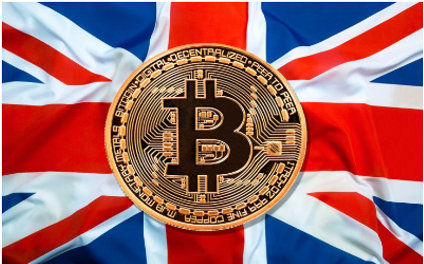
In order to maintain consumer security, the government plans to introduce regulations for digital currencies that at minimum, meet the standard requirements of regulation for other types of payment methods.
There has been a lot of confusion and lack of regulation surrounding crypto start-ups in the UK, leading to the former Chair of CryptoUK, Iqbal Gandham stating “the absence of regulatory direction has stifled innovation in the industry” in an interview with CoinTelegraph.
This year saw the quiet opportunity for UK businesses to register with the Financial Conduct Authority, a small window of opportunity that, if missed, requires all businesses offering crypto-related services to cease trading in January 2021. All businesses registered with the FCA must be compliant with a range of obligations following the rules and guidelines under the MLRs (Money Laundering, Terrorist Financing, and Transfer of Funds Regulation).
Taxes and Exchanges
The Kraken subsidiary, Crypto Facilities, is the first crypto exchange to register with the UK Financial Conduct Authority as a multilateral trading facility (MTF), subject to substantially more regulations than other FCA-registered exchanges, regulated by the Markets in Financial Instruments Directive (MiFID) such as Binance. The MiFID monitors and regulates the trading and movement of registered security tokens. Tokens must first be compliant with a set of regulatory obligations prior to listing that is usually determined on a case-by-case basis.
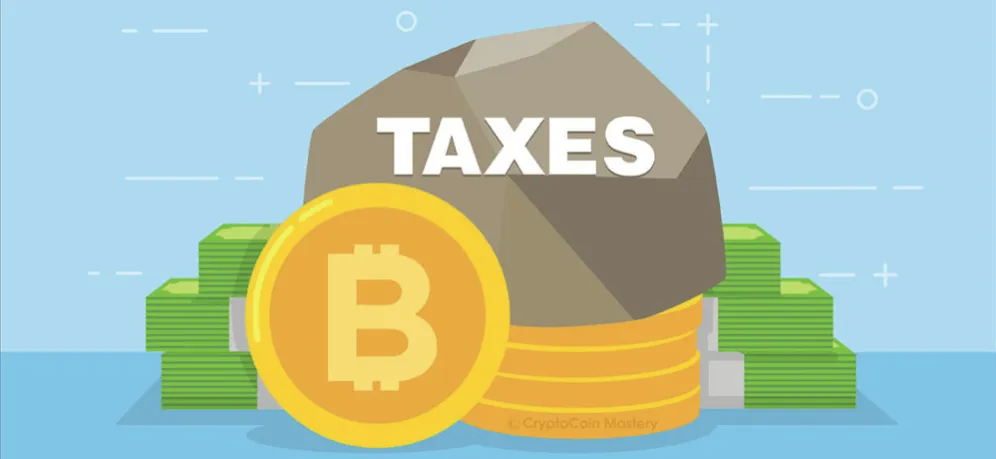
The tax implications for crypto-users in the UK have been unclear until recently, with many people believing that they don’t have to declare anything and will go unnoticed if they keep quiet. Earlier this year it was confirmed HMRC has requested the KYC (Know Your Customer) details from the Coinbase and Binance user database, for all accounts with more than £5000 moving through it. The current UK government states that cryptocurrencies are subject to Capital Gains Tax (CGT), and must be declared when asked about any investment holdings or savings.
Japan
Following the Mt Gox exchange hack in 2014, the largest Bitcoin hack to date where blackhats accessed and stole 740,000 BTC from the exchange, Japan was quick to create and update new regulations regarding the cryptocurrency industry. In 2017, the Payments Services Act (PSA) was initiated to offer a clear legal definition of cryptocurrency, and an outline of obligations any crypto-related business must adhere to. This includes monitoring and recording every cryptocurrency transaction within the business, and submitting an annual accounts record to the Japan Financial Services Agency (FSA), in addition to a crime report obligation to report suspicious activities.

By introducing stricter regulations, consumers and businesses are clear where they stand with the law and the obligations for compliance of the registered authorities. With this in mind, it showcases a pioneering framework for other countries to adopt in terms of crypto regulations, with suggestions the UK may follow this strategy.
Crypto Regulation Conclusion
Several socio-economic and political factors affect crypto regulation across different parts of the world. While some governments and central banks see cryptocurrency and blockchain technology as a threat, others see it as an opportunity to reinvigorate the global economic machine and spark innovation in the fintech space within their own nation.
For some that have been in the game for a long time, crypto regulation may seem scary. Keeping track of every trade ever made could expose any nefarious activity and reveal unexpected tax implications. Learn more about crypto regulation through enrolling in Ivan on Tech Academy and supercharging your blockchain education! Get 20% off with the code BLOG20.
Renowned wealth manager Ray Dalio recently claimed that governments might outlaw cryptocurrency. Although this is technically possible, and censorship is increasing in many jurisdictions, an outright ban on cryptocurrency would be near-impossible to achieve, and even if it was achieved, some seriously wealthy individuals would have a lot to say about it. Regulation makes businesses feel confident in allocating funds into Bitcoin as a hedge against inflation and new investors would feel more confident dipping their feet in well-regulated waters.
This may displease some maximalists, but for crypto mass adoption to truly become a reality, removing the hurdles and setting clear guidelines for big money to enter the space without friction is essential to keep the industry moving forward.
Risk and reward, though, are the lifeblood of cryptocurrency markets. Less risk on a structural level could impede innovation and stifle growth for many smaller projects. That being said, when we have ETFs and pension funds for Bitcoin, it will be huge, and governments will not be able to ban it. How do you ban a multi-trillion dollar asset that is global, borderless, and owned by members of governments worldwide?
